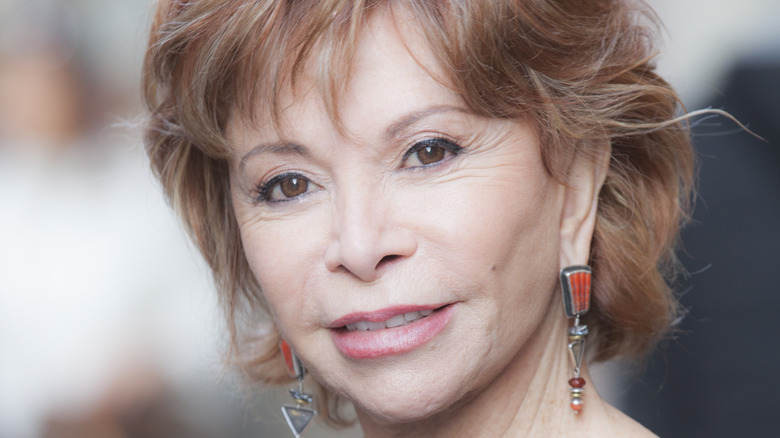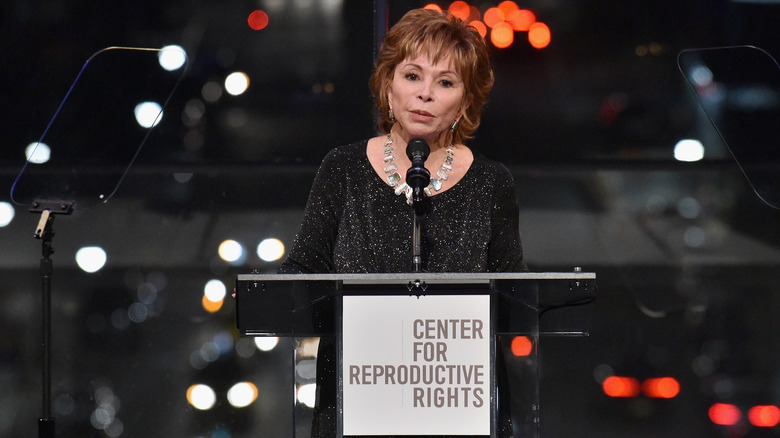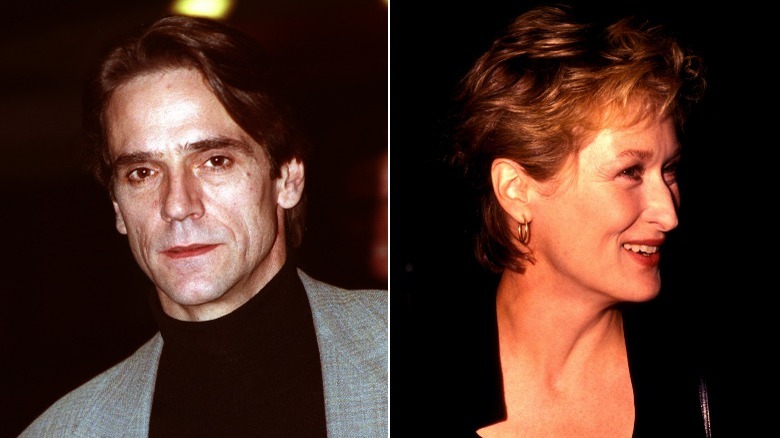If You've Never Read Anything By Isabel Allende, Here's Where You Should Start
A century ago, the world was an even more turbulent place. Fascist Frederico Mussolini had overthrown the Italian government, per The People History. Pacifist Mahatma Gandhi was sentenced to six years of prison. Civil war erupted in Ireland. And in Isabel Allende's "The House of the Spirits," Clara began keeping a journal (via Spark Notes). This sacred act of writing sparks an odyssey that spans from the 1920s to the 1970s in an unnamed Latin American nation, according to Biography. Clara's granddaughter Alba, along with her grandfather Esteban, use these journals to piece together their family's history as a government takeover, during which Alba has been abducted, threatens their lives.
The plot of this award-winning novel closely resembles Allende's real life. Her godfather, Salvador Allende, became the first socialist president of Chile in 1970. Three years later, he was overthrown by General Pinochet and died during an attack on the presidential palace. Despite her efforts to help those harmed by the military regime, eventually, Isabel Allende and her family were forced to flee to Venezuela. Allende, a successful journalist, weaves together this horrifying political reality using a spiritual thread in "The House of the Spirits," her debut novel.
The House of the Spirits explores women's lives using magic realism
"The House of the Spirits" tells the story of three generations of women: Clara, Blanca, and Alba (via Super Summary). Since birth, Clara has possessed the ability to divine the future, even predicting that she would marry her sister's fiancé, which she ultimately did. In literary terms, Clara's fittingly-named clairvoyance is a device known as magic realism. Stories that employ magic realism feature realities where magical elements — in this case, psychic abilities — happen as commonly as any other truly realistic part of life (via MasterClass). Franz Roh, the critic who coined the term, believed strongly that real life can seem otherworldly if you stare at it long enough.
That's why magic realism as a literary device also functions as a form of cultural critique (via MasterClass). Given the context of "The House of the Spirits" and Allende's personal experiences, the fact that Clara, a woman, can see the horrors that lay before her when men in actual political power cannot seem to predict events that shake entire nations, Allende deftly uses this device to further secure her political and spiritual argument.
The House of the Spirits was adapted into a film in 1993
As lauded as Isabel Allende's novel was, the film adaptation of "The House of the Spirits" is considered a flop by critics. Rolling Stone's Peter Travers lamented, "It's always painful when a brilliant book becomes a bust of a movie." Despite the all-star cast, which included Jeremy Irons as the grandfather Esteban, Meryl Streep as the matriarch Clara, Winona Ryder as daughter Blanca, and Glenn Close as Esteban's sister Ferula, movie critic Roger Ebert declared that while all the elements of the book were present in the movie, there was one important thing that was missing: "the soul."
The movie didn't embrace the magical realism that's often a central focus in many South American novels. The film, Ebert added, looked at Clara's oracular abilities "as a slightly embarrassing social gaffe, like passing wind," instead of a crucial element of the story. "The filmmakers see them more as ornamentation," he chided. Travers concurred, "The movie will vanish quickly; the book will endure."
After you read "The House of the Spirits," check out two other fabulous female writers: Maya Angelou and Maeve Binchy. No matter where in the world you're from, there's a writer ready to tell your story. It might just be you.


